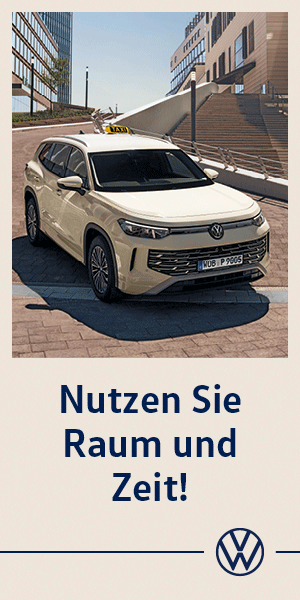Interview with IRU Taxi Group-president Hubert Andela: “I see more opportunities than threats”
“On the whole, I see more opportunities than threats for the international taxi industry”. Hubert Andela (51), since 2007 Dutch president of the International Road Transport Union’s Taxi Group, ends this exclusive interview with Taxi Times on a defiant and positive note.
No wringing of hands at the mention of ‘disruptive apps’, but a positive outlook. The launch of IRU’s Global Taxi Service Quality Network (GTN), at the organisation’s Sixth Taxi Forum in Cologne surely contributed to that.
Andela, who trained as an engineer, is no stranger to adversity and turbulence in the marketplace. In the years before he joined the Dutch taxi association Koninklijk Nederlands Vervoer Taxi (KNV Taxi, 2004) as General Secretary, he was sales director of a meat company and led a trade association in the agricultural sector – not exactly a quiet life, especially with the continually shifting sands of EU regulation. This also meant that Andela is no stranger to ‘Brussels’ and its European institutions.
But currently there are plenty of challenges on Andela’s home front too. Fitting an all-registering on-board computer, logging many driver working details and payment data in the country’s street-hail vehicles was a difficult process. The discussions with national government took years, but like the Swedish colleagues, KNV Taxi aimed at a truly transparent taxi trade with a level playing field for all. Even as most street-hail vehicles have had these ‘black boxes’ installed, now IT-problems on the regulators’ side plague the system. It will take more than a year before the data from these computers can be downloaded by the regulators.
IRU structure
The major headache in The Netherlands’ taxi trade is the severe and hard-hitting cuts in the area of contract work and major changes in the organization of this taxi work. Transportation of elderly people, people with mobility handicaps and schoolchildren is the mainstay of the Dutch taxi sector: Almost 70% of Dutch taxi turnover (€ 1,4 billion in 2013) is generated by contract work, which makes the Dutch taxi industry quite unique and more similar to its Scandinavian counterparts in character. Of the 35.000 taxi vehicles, the typical taxicab in The Netherlands is a wheelchair-accessible Mercedes Sprinter rather than a saloon car. Ordinary street-hail taxi work is for Amsterdam, Rotterdam, The Hague and Utrecht.
This year Andela has been hard at work on two fronts: on his home turf and on the IRU and EU-level.
Taxi Times: You are obviously known as IRU Taxi Group-president in your own country, but would it surprise you if many taxi operators in Europe are not aware of the IRU Taxi Group or of its president?
Hubert Andela: “That has to do with the structure of the IRU. The IRU Taxi Group is not an association of taxi operators, but an association of taxi associations. That makes quite a difference. I’m not the president of an association of operators. IRU’s promotion is done via the national associations. If they would like IRU to promote certain themes more strongly internationally, they must decide on that course of action.”
Why do you think IRU is not known as the taxi industry’s European representative in many countries?
“That has to do with two things. The one thing is that the IRU is a global association. In the Taxigroup we only have associations from Northern, Central and Western Europe plus the USA. These are today’s facts. We are widening our goals, however. In tandem with that we would like to add members in other parts of Europe and on other continents. Secondly, we do play a very important role within Europe. We’re also very well known and recognized in the EU institutions, at the EU Commission and the EU Parliament. And whenever there are themes that have do to with collective transportation, with public transport, we voice our opinions. But don’t forget that 90 to 95 percent of taxi laws are national or local.”
Andela explains that when the EU discusses new white papers on transportation or particular themes in the public transport arena, they often have to do with trains, buses and coaches. “In that respect taxis tend to be forgotten. When it comes to views on white papers or on items like doubling the use of public transport – we’re there! And we’re well-known by the relevant policy makers.”
Given the fact that taxi regulation is a matter of subsidiarity, for national or local authorities to decide, why is the IRU lobbying for a wider EU involvement?
“IRU has been lobbying for an adapted form of access to the profession of taxi operator, similar to the …
Read more at Taxi Times Print-Issue.







